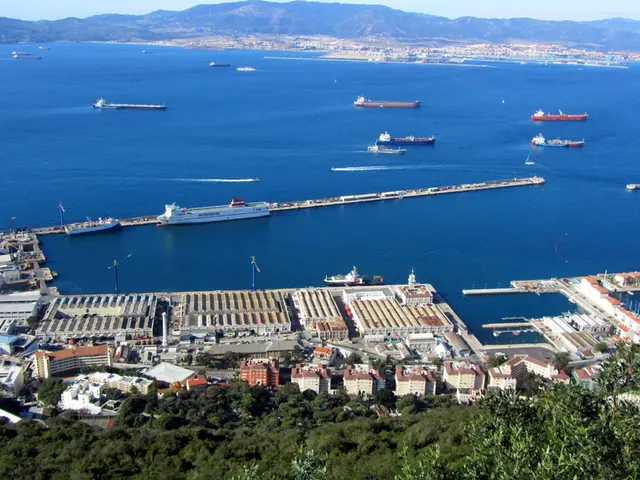Severe weather impacts Leipzig cityscape, initiating eco-friendly water management system development
Leipzig's "Sponge City" Plan is a comprehensive initiative aimed at making the city more resilient to extreme weather conditions, particularly heavy rainfalls and summer heatwaves. The plan, scheduled for completion by 2030, focuses on sustainable water management by intelligently storing, recycling, and utilising rainwater within the city[1][2].
The core of the plan involves the integration of green infrastructure, such as permeable surfaces and expanded green spaces, to absorb and slow down runoff water. Rainwater harvesting systems will be implemented to collect and reuse water locally instead of allowing runoff to overwhelm drainage systems[1][2].
Another key component is the establishment of blue-green corridors – networks of interconnected water bodies and vegetated areas that manage rainfall effectively and support biodiversity. The plan prioritises decentralised water management, supporting local retention and infiltration over centralised systems that can be overwhelmed during heavy rains[1][2].
The "Sponge City" plan is part of Leipzig's broader urban sustainability goals, including affordable housing and sustainable mobility, indicating a holistic approach to city planning that integrates water management with livability and climate resilience[1][2].
The steering network in Leipzig, a collaboration between the city, the waterworks, and the association for water supply and wastewater disposal, is working to facilitate this sustainable water management[1][2]. The network's primary focus is on managing the impacts of extreme weather conditions in a sustainable manner.
However, the plan does not explicitly state how it will address summer heatwaves or provide specific goals for water management beyond sustainability[1][2]. It also does not mention any mechanisms for managing heavy rainfalls beyond retaining water, and the use of retained rainwater beyond irrigation of green spaces is not specified[1][2].
Leipzig's "Sponge City" plan is part of Germany's larger trend towards climate-resilient urban design, accelerated by the devastating floods in 2021. The plan involves multiple stakeholders, including investors, city authorities, and urban planners, reflecting the recognition that effective water management requires cross-sector collaboration[1][2].
[1] Leipzig City Council. (2021). Leipzig's Sponge City Plan. Retrieved from www.leipzig.de/spongecity
[2] Deutsche Welle. (2021). Leipzig's Sponge City Plan: Turning Rainwater into a Resource. Retrieved from www.dw.com/en/leipzig-sponge-city-plan-turning-rainwater-into-a-resource/a-59239261
- The integration of environmental-science principles in Leipzig's "Sponge City" Plan, such as climate-change mitigation strategies and weather-forecasting, will help the city better prepare for and adapt to extreme weather conditions.
- Leipzig's "Sponge City" Plan acknowledges the complex relationship between weather patterns, climate-change, and the environment, aiming to use science-based solutions for effective water management.
- To bolster the city's climate resilience, Leipzig's "Sponge City" Plan, in collaboration with various stakeholders, seeks to apply weather-forecasting information to improve its strategies for managing extreme weather events, such as summer heatwaves and heavy rainfalls.








